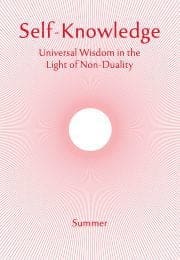Self-Forgetfulness
One of the phrases that appeared in the 1960s was ‘It blew my mind’. It was particularly associated with the psychological effects of hallucinogenic drugs. The phrase is still used, but its meaning has softened. Nowadays, we may hear it applied to any experience that makes a deep, pleasant or powerful impression on our mind, or induces forgetfulness of our situation with its worries and responsibilities. Thus our mind can be blown not just by intense sensory experience, but in the presence of genuine excellence in entertainment, instruction or outstanding achievement.
The problem with blowing the mind in the original sense is that the joy induced depends on outer props. It also suffers from a ‘diminishing margin of satisfaction’: the original satisfaction can only be matched by increased dosages, as side-effects harm the body and depress the mind.
Let us ask why the mind feels a need to be blown at all, and whether this need can be met in a harmless and creative way.
The first thing to note is that the thirst for an improved state of consciousness implies that there is something absent or undeveloped in our present psychological functioning. We note also that where there is a deep and persistent desire, there must exist the means to fulfil that desire, even though these means may be concealed to start with. The words of Aristotle towards the end of his Ethics, suggest the true range of human aspiration:
And we ought not to listen to those who counsel us: ‘...O mortal, remember your mortality’. Rather ought we, so far as in us lies, to put on immortality and to leave nothing unattempted in the effort to live in conformity with the highest thing in us.
For Aristotle, there is ‘something divine within us’. He associated this ‘divine particle’ with our intellect, and held that its higher facets could be revealed, at least partially, through abstract contemplation on metaphysical problems. This, for him, was the way to true happiness.
What, then, is the seemingly missing or undeveloped aspect of our nature, which drives us to experiment with ‘blowing the mind’? It is surely the thirst for lasting happiness, based on a deeper understanding of our own nature.
It may seem that lasting joy is the one condition that is not available to human beings, due to our limited powers and the fact that life’s changes culminate in death and the loss of everything. But this is not the whole story. Before Aristotle, the sages of the non-dual tradition fathomed the mystery of the human mind, and thereby achieved a breakthrough in understanding which brought a complete end to the restlessness of ‘not knowing’. They found that once the mind was suitably prepared, the supreme and fulfilling knowledge that underlies life would be revealed of itself as self-evident. No new knowledge would be born within us, because there was no need for any new revelation. The knowledge of absolute truth is innate in our being, as our true nature, our ‘I’. The suitable preparation of the mind (and not of the pure ‘I’ itself) was a process of removing the obstacles to knowledge, which would then shine through.
Needless to say, this preparation for higher knowledge has nothing to do with artificial aids to upliftment; rather the opposite is the case.
Subscribe or enrol for free guest access to read all of this article and Self-Knowledge online.
Already subscribed or enrolled? Log in:


